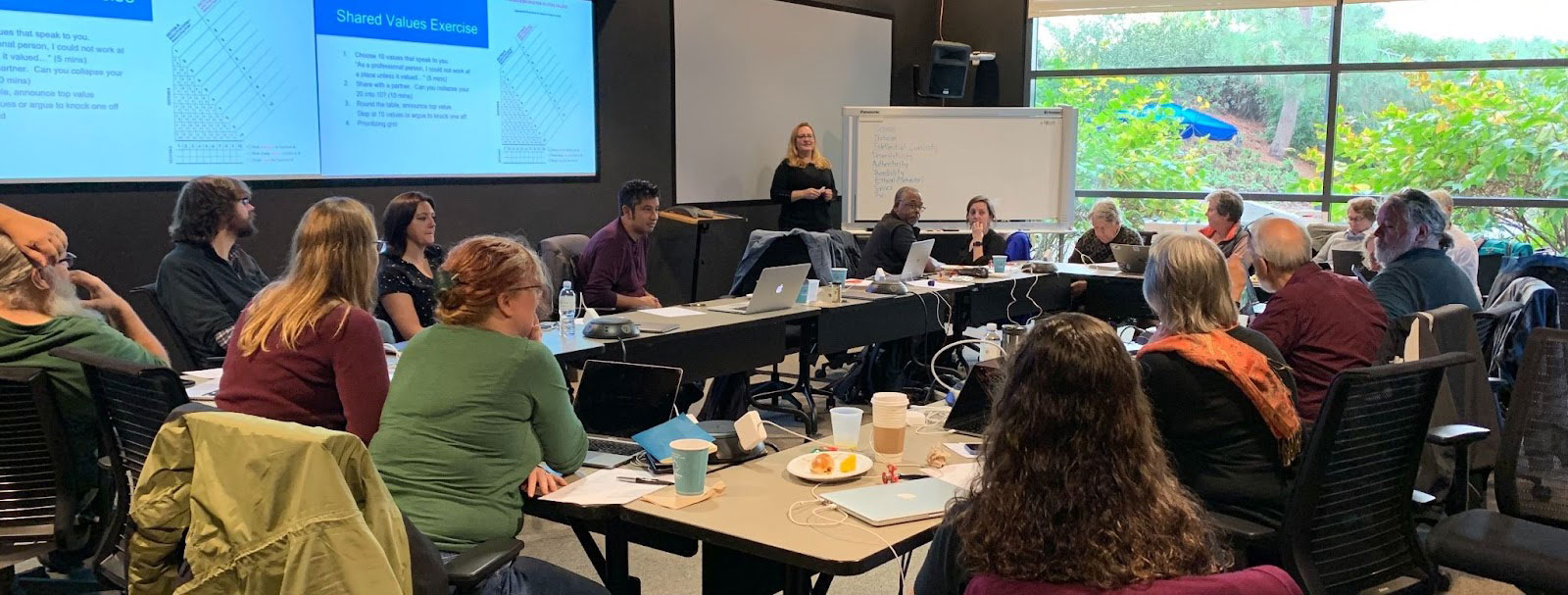News
SDSC’s Research Data Services Director Contributes to Minimum Viable Consortia Study
Published March 28, 2022
Kimberly Mann Bruch, SDSC External Relations

Kirkpatrick leading the EarthCube Leadership Council and EarthCube Office in a Shared Values Exercise in 2019. Credit: EarthCube Office
Minimum Viable Consortia (MVC) have been defined by social scientists as collaborative initiatives that are constantly undergoing adaptation to better achieve a group’s goals. Along with colleagues from the Stakeholder Alignment Collaborative, Christine Kirkpatrick, the division director of Research Data Services (RDS) at the San Diego Supercomputer Center (SDSC) at UC San Diego, recently published guidance for launching and managing MVCs in the Stanford Social Innovation Review.
The research focused on four case studies – including EarthCube, which is housed at SDSC and Scripps Institution of Oceanography SIO, as well as the U.S. National Data Service, previously led by Kirkpatrick – and analyzed the ways in which small, agile initiatives can drive large-scale change.
Kirkpatrick said that the EarthCube case illustrated a well-applied cycle of what is known as “align, act, adjust,” where an organizational structure adapts to the needs of the initiative through stakeholder alignment.
“The past two years of intensive work and Zoom overload have elevated the need to streamline our lives and to keep only the meetings that are needed,” said Kirkpatrick. “The same thing is true of consortia. It’s common to become so rooted in the way things have been, that we forget that stakeholder-driven organizations can – and should, adapt with evolving needs of the community. In many cases, less (structure) is more.”
The full article, entitled When Launching a Collaboration, Keep it Agile, was written by the Stakeholder Alignment Collaborative, founded by Joel Cutcher-Gershenfeld of Brandeis University, and published in the Stanford Social Innovation Review.
About San Diego Supercomputer Center
SDSC, located at UC San Diego, is considered a leader in data-intensive computing and cyberinfrastructure, providing resources, services and expertise to the national research community, including industry and academia. Cyberinfrastructure refers to an accessible, integrated network of computer-based resources and expertise, focused on accelerating scientific inquiry and discovery. SDSC supports hundreds of multidisciplinary programs spanning a wide variety of domains, from earth sciences and biology to astrophysics, bioinformatics and health IT.

